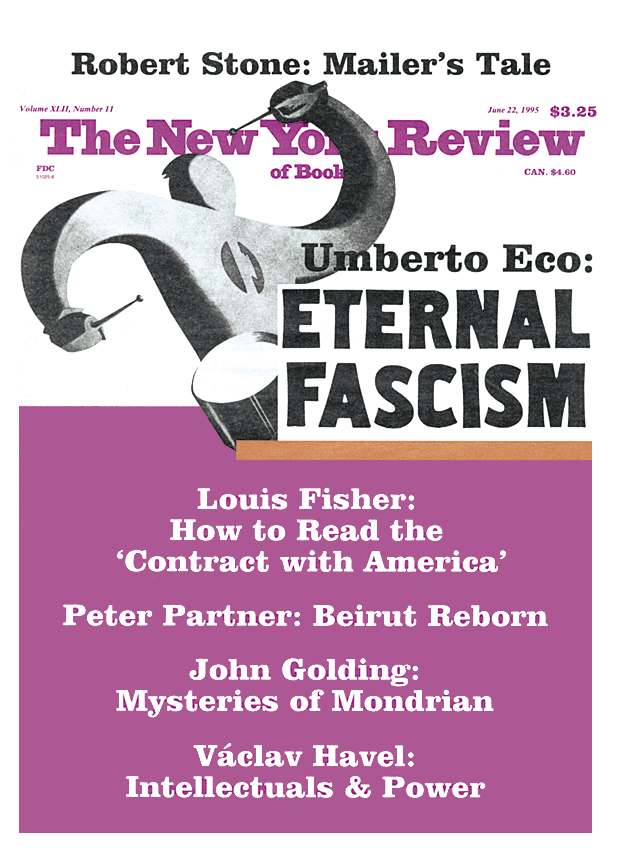In response to:
The Misunderstood Victory in Europe from the May 25, 1995 issue
A couple of mistakes have come to light in the text of my article “The Misunderstood War in Europe” [NYR, May 25], and I am pleased to correct them. I am grateful to the readers who have drawn my attention to them.
Firstly, I suggested that heavy American losses on Okinawa had influenced diplomatic calculations at the Yalta Conference. This is obviously wrong since Okinawa was not stormed until two months after Yalta, in April 1945. Okinawa featured prominently in the arguments preceding the dropping of the atomic bomb, but not before Yalta.
Nonetheless, I think that the main contention of the paragraph still holds good. Roosevelt and Churchill were predisposed to make concessions to Stalin at Yalta because of the uncertainties of the Pacific War. Yalta took place at a juncture when the road to ultimate victory in the Pacific had not been cleared. The long and costly operation to recapture the Philippines (October 1944-March 1945) was still raging. The Western leaders could not have been unaware of the immense difficulties which faced them in defeating Japan, and hence of the urgent need to secure the assistance of the Soviet Army in the Far East.
Secondly, I also wrote: “The police records of the French Third Republic…had been carried off by the Gestapo. They are now, it seems, in Moscow.” This reads as if the Third Republic’s police archives had been carried off in their entirety. What I should have said was “French police records carried off by the Gestapo are now, it seems, in Moscow.” To be more precise, researchers delving into the vast, uncatalogued holdings of the Osobyi Arkhiv recently found not only what appear to be the files of the Gestapo’s central office in Paris but also an assorted collection of French police records. Some of the latter go back to the nineteenth century, and had presumably been “acquired” by Gestapo officials to further their nefarious activities in France.
Once again, however, the main contention of the paragraph is not affected. The discovery of hitherto unknown or inaccessible sources in Moscow and elsewhere in Eastern Europe is opening up perspectives on the Second World War, which scholars could not have hitherto pursued.
Norman Davies
School of Slavonic and East European Studies
University of London
London, England
This Issue
June 22, 1995


